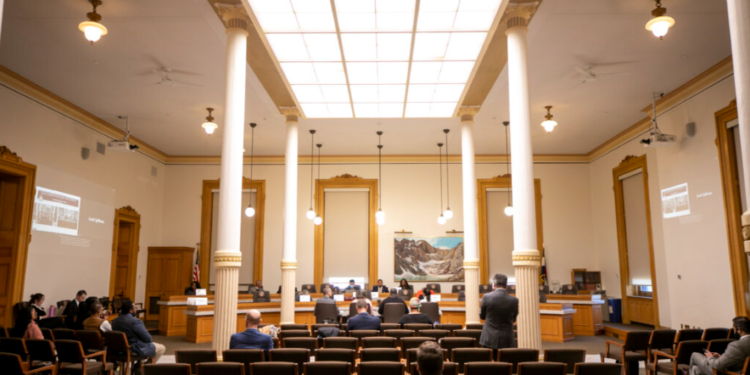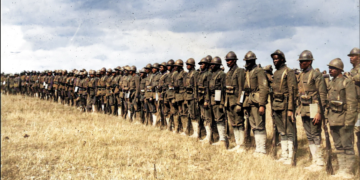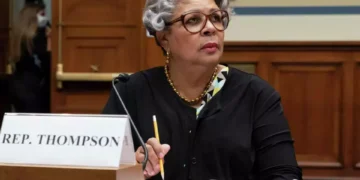Jan 24, 2025 Story by: Editor
Joel Estes, the namesake of Estes Park, arrived in Colorado with five enslaved individuals, and records reveal that until the early 1900s, at least ten people were lynched in the state. These findings emerged from a recent investigation initiated by History Colorado under a new state law requiring a study into the historical injustices faced by Black Coloradans.
In 2024, SB24-053 became law. Sponsored by State Senator James Coleman and State Representatives Leslie Herod and Naquetta Ricks, the legislation tasked the Black Coloradan Racial Equity Study Commission with examining the historical and ongoing impacts of slavery and systemic racism on Black residents, as influenced by state practices, systems, and policies.
During a meeting at the State Capitol on Thursday, the commission, which has been operational for just five weeks, shared preliminary findings that challenge long-held beliefs about slavery and lynching in Colorado. The gathering, aimed at introducing the research team and outlining the study’s scope, was attended by a small group of spectators, the 14-person commission, and members of the research team.
Dawn DiPrince, President and CEO of History Colorado, introduced the research team members:
- Chloé Duplessis, who will manage the Colorado Black History research program, leads investigations into state policies that harmed Black Coloradans.
- Scott Spillman, tasked with compiling the team’s findings into a final narrative.
- ChaToyya Walker, focused on collecting oral histories from Black residents.
Two additional team members are yet to be hired, with interviews underway, DiPrince stated.
In her brief tenure, Duplessis uncovered documentation connecting Joel Estes, the founder of Estes Park, to slavery in Colorado. “Now all of us, to some degree, I’m assuming, are familiar with the beauty and the grandeur and the joy that is Estes Park,” Duplessis remarked. “But many of us may not be aware that this place…is connected to Joel Estes who traveled here with five enslaved persons and remained here for a number of years. Upon leaving, [he] took with him his property, his materials, and five enslaved persons.”
She referenced a memorandum sent to Albert E. Sprague by H. Huffner, a grandson of Joel Estes, which stated:
“The enslaving Estes family member took with him five negro slaves who had been in the Estes family for a number of years…gave them some livestock and provisions to last for a year and freed them a year before Abraham Lincoln’s Proclamation…The slaves were a curiosity to the Indians of Colorado, who came to their camp by the thousands to look at the Black man and wondered at the curly hair and the color of the skin.”
Herod, one of the legislation’s sponsors, acknowledged long-standing misconceptions about Colorado’s history. “I think there’s a big question about if we need this study at all specifically because Colorado has never had slavery. But unfortunately, that is not the only impetus for racism to have been embedded in our laws in Colorado,” she told CPR News in November 2024.
The meeting also highlighted findings from Walker, who has been reviewing historical records on lynchings. “I think there were about 10 to 20 Black people who were lynched…Quite a few are unnamed, so I’m trying to track down who it might be and…what they were accused of before they experienced that violence,” Walker explained.
The study will explore how Black Coloradans have faced systemic barriers in wealth, health, education, and justice. Key areas include:
- Wealth: Discriminatory practices like redlining, restricted access to credit, and job discrimination.
- Health: Issues such as maternal health disparities, food deserts, and segregated recreation facilities.
- Education: Segregated schools and unequal access to libraries and infrastructure.
- Justice: Harassment and violence by law enforcement, mandatory minimum sentences, and other systemic biases.
While the term “reparations” is absent from the study’s official materials, the ultimate goal is to evaluate the economic impacts of these harms on Black Coloradans, with an emphasis on accountability.
Colorado joins California and Illinois in examining reparations or related measures. In California, Governor Gavin Newsom recently signed bills addressing racial discrimination, including a formal apology for the state’s role in perpetuating slavery. Illinois has seen Evanston offering $25,000 in housing relief to Black residents affected by historical housing discrimination, though this initiative faces legal challenges.
Source: CPR News

















